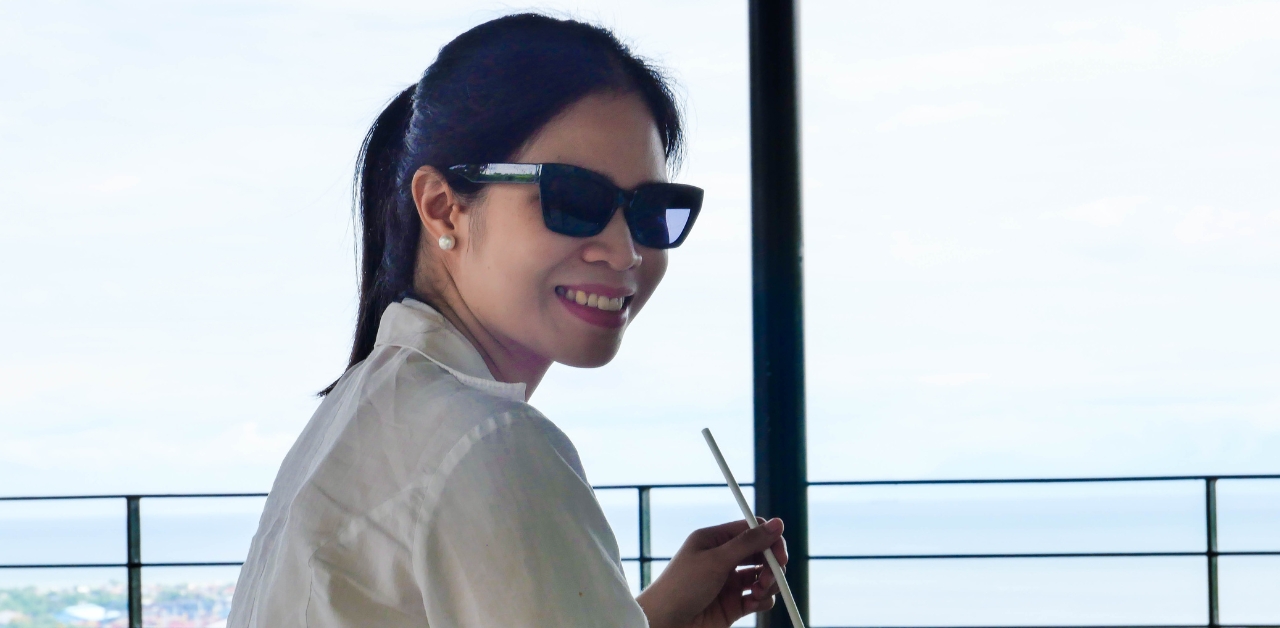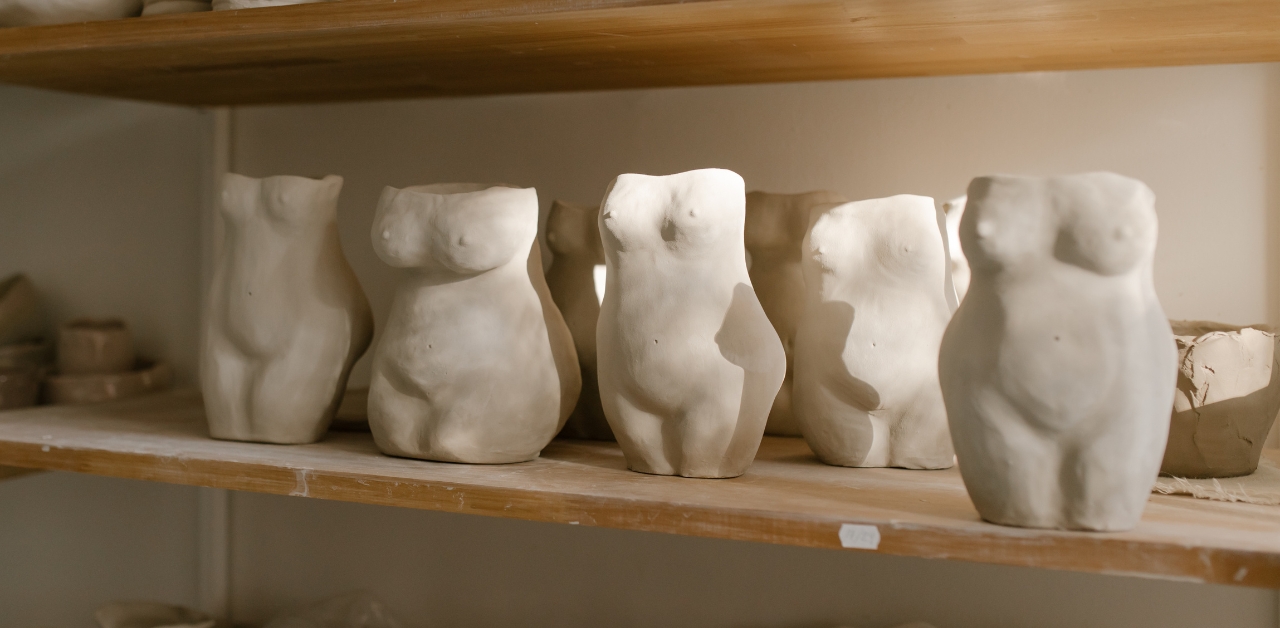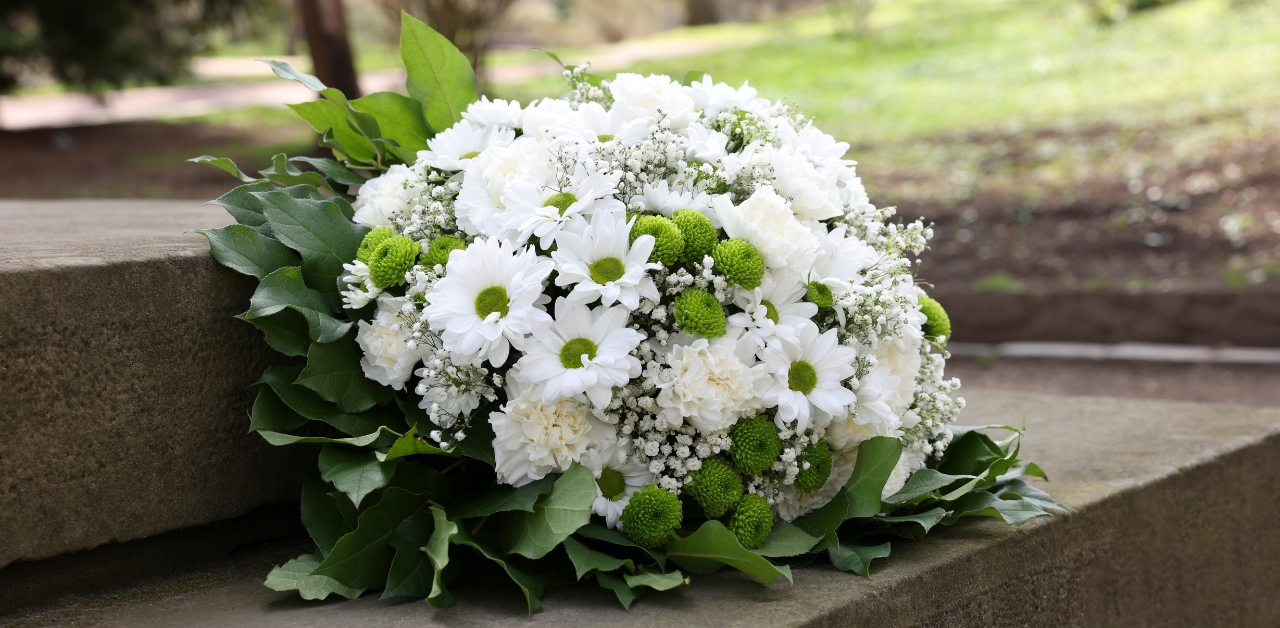I turned 30 this May 2025. Looking back, the decade flew by as my 20s were packed with milestones, new jobs, switching careers, and a few hard resets. Also, the pandemic compressed time and reshaped what mattered in my life. Because of this, I discovered some things I wish I’d learned sooner.
So, in no particular order, here are the lessons and truths I’d share with anyone who’s still in their 20s or even in their teenage years.
1. Save and invest as much as you can when you start earning money.
In this digital age, we’re constantly bombarded with marketing tactics that entice us to spend our money. Ads on social media, friends’ posts, online shopping, clearance sales, or swiping your credit card to buy the Cebu Pacific piso fare sale. It’s easy to spend instead of saving like building an emergency fund.
Early in my career, I was still healing my inner child and splurged on things and experiences I missed in my younger years. Later on, I wish I’d found a better balance by saving and investing more and spending with intention. Knowing the time value of money and how delayed gratification works would have put me further ahead. Still, I’m thankful for those experiences as it taught me how to be smarter in managing my finances at present.
Unfortunately, in the Philippines, schools don’t teach the importance of saving and investing. If you want to know how to manage your finances wisely, educate yourself as this is an important life skill one needs to have. A simple start I suggest would be to automate a small transfer each payday, aim for a 3–6-month emergency fund, and mute shopping triggers (Insert Shopee audio notification) that make you impulsively buy things you don’t need.
2. Don’t fall for deceptive marketing tactics.
Regardless if whether a product or service is on sale, if it’s not a need, then it’s not a good purchase. We’re constantly served marketing emails and ads in our social media feeds for vouchers, free shipping, and clearance sales. But right now, I’ve learned to pause and ask if it meets a real need, not just a discount-driven impulse.
Building on that, I’ve realized I accumulated things in the past that I shouldn’t have bought in the first place. Now, I’d rather only buy what I need. Unnecessary stuff becomes clutter and add storage stress, especially with a limited space at our homes. Being intentional when buying a product or booking a service matters more than acting on impulse. Otherwise, we usually end up regretting it as we’ve wasted time and money.
3. If you’re planning to pursue a business course, choose Accountancy.
I studied Accountancy for a year and a half, then switched to Business Administration, major in Finance. I didn’t switch because I failed. I shifted from Accountancy to avoid the academic load and peer pressure I’d expect in my junior and senior years. In hindsight, I didn’t realize that what I gave up, is one of the strongest business foundations I could’ve learned. One of which are learning the fluency in financial statements. I wish I had weighed short-term pressure against the long-term skills I could’ve gained.
I’m still grateful for my Finance degree as I met my lifelong friends along the journey, learned from good professors, made connections with my classmates after graduation, and met colleagues along the way. I also spent six years in the lending divisions of two universal banks in the Philippines, where I gained my credit, lending, and finance skills.
But I felt stuck during my 6-year career. Because my background was in lending, my next role mirrored the last. The momentum of that specialization narrowed my options.
Eight years after I graduated, I never thought that my interest in Accountancy would resurface. So, how did my interest in accounting got back?
Maybe maturity, real-world experiences, and a clearer view of my long-term goals brought the spark back.
I’ve been working for almost 3 years as a Virtual Assistant for an accounting and finance recruiting agency in the United States. In 2024, we launched an interview series where my client, the CEO, hosted a series where accounting hiring managers are the guests. The CEO would only ask two questions to the guest: “What would you tell your younger self as a staff or senior accountant?” and “Why do you love accounting?” I’m the one who edits the videos for YouTube and LinkedIn, so I heard every CFO, Controller, Finance Manager, or Accounting Manager’s answer.
Two takeaways stood out. First, accounting majors, especially CPAs, have broader opportunities and steadier job security because businesses always need reliable financials for compliance, reporting, and decision-making. In worst case scenarios, even after this person might be laid off, that background makes finding the next role not that hard. Second, you have more flexibility when you have an accounting degree, contrary to what I knew in my limited knowledge before that you’re just locked into one industry. On the other hand, my banking experience funneled me into lending roles, so each job mirrored the last, as what I mentioned previously. Unlike if you’re an accountant or a CPA, you can move across fields, work in different industries, and choose the work that interests you the most.
With this, I’d like to pursue Accountancy again, when I have the time, energy, and money, in the near future. For now, it’s on the back burner while I focus on the current season I’m in.
That’s why if you’re going to college and ask me what business degree to choose, I’d say to choose Accountancy or if you’re in the program right now, love it and keep going. It offers a stable, flexible, and lucrative career path for you. The knowledge and skills you’ll gain is far more valuable than attending the “top” business schools.
4. If you want to quit your work, stay for at least a year.
I didn’t understand the advice to “stay at least a year” before leaving a job. In my last two roles, the first few months have always been overwhelming. I often wanted to quit because of the workload, the learning curve, and the working environment. In hindsight, I’m glad I stayed more than a year in my last 2 jobs.
It’s not just how a six-month stint looks bad on your resume. Short tenures can read as job-hopping, which makes hiring managers hesitant to invest time, training, and budget in someone who may not stay long enough to deliver value. Someone’s tenure in the resume signals reliability. It shows that you can work, contribute, and stick around to see results.
I respect that mental health is now given more value these days. I’ve felt how our work outputs get affected when we are in a bad mental state. Still, if you’re stressed, I suggest holding on for at least a year before resigning, unless if the role is unsafe, abusive, or clearly harming you which is a different scenario.
By staying for a year, your future self will thank you. This also saves you from explaining short stints to HR or hiring managers. In the meantime if you’re in a tough work situation, set boundaries, seek support, and document wins so you can leave on your terms and be prepared for the next job you want.
5. Don’t share your plans and accomplishments to other people.
There were a lot of times in the past where I shared my plans with people whom I thought would cheer me on. It hurt to realize later that some weren’t genuinely happy for me. At worst, they used what they knew against me. Now, I share selectively and let the results do the talking.
I wish I’d known in my early 20s to keep my plans and wins to myself, even with friends. Not everyone is genuinely happy for you. Some may secretly project their fears, compare, or compete with you. Sadly, some don’t want you to outgrow them and may use your words against you.
That’s why right now, I build quietly, protect my energy, and share the results when they’re real, as it keeps me focused on my goals and cuts out the unnecessary noise.
6. Establish an etiquette and personal brand on social media.
I’ve shared in my other blog post about the 6 simple rules I adhere whenever I’m on social media. These days, we easily give away our thoughts and personal details that we forget that the details and posts stay forever on the internet. In effect, how we behave online shapes our reputation.
7. Date intentionally.
Choose a life partner whose character and values align with yours. I used to rush relationships by speeding through labels and feelings. Later, I realized that dating is an investment of time, money, and energy. When you invest your time with a wrong person, you lose your peace of mind.
I’m grateful I dated my husband with intention. From the start, we were aligned on building a long-term partnership and being on the same page for the future.
But if I were in my 20s, I would’ve slowed down by spending up to six months getting to know the person without romantic ties or pressure. Use that time to set expectations, watch for consistency, and see whether your values, goals, and daily habits actually fit. If it’s not a match, step back early and kindly.
8. Prioritize nutrition over calories.
Since my eating disorder recovery, I’ve been building a healthier relationship with food by prioritizing nutrition over calorie counting. When I began to treat food as a form of nourishment, my energy and mood have improved. A poor relationship with food can erode both physical and mental health as you age.
Building on that, social media makes it easy to prize looking lean over feeling strong, sleeping well, keeping steady energy, and building a healthy relationship with food. The unhealthy mindsets some influencers promote can push people into crash diets and overtraining that backfire on our hormones, mood, and metabolism.
From my experience, I’m sharing this as someone who lived with an eating disorder for 15 years and is doing my best to rebuild a healthy relationship with food. I’m learning to value nourishment over perfection such as listening to hunger and fullness cues and choosing habits that I can sustain. Chasing aesthetics like achieving the “summer body,” the desired number on the scale, or a dress size pulled me away from prioritizing my health.
9. Exercise to strengthen your body, not to punish it.
Make time to move your body in ways you enjoy. Consistency comes easier when it’s fun and eventually, strength follows. During my 15-year eating disorder, I used to ran several kilometers not to build leg strength or stamina, but to burn off calories I ate from foods I’d labeled “bad.” I’ve since learned that we shouldn’t put moral labels like “good” or “bad” on food.
Staying with that mindset, I value exercise for how it makes me feel. I like feeling strong and happy after a sweat, thanks to the endorphins that follow a good workout. Also, as someone who works remotely, movement helps me decompress after eight hours at a desk. I gravitate towards yoga, isometric workouts, and kettlebell sessions. I’ve realized I don’t need a gym. An exercise mat, a kettlebell, a couple of weights, and my own body are enough to exercise at home. When it isn’t raining, my husband and I head out for walks or hikes around our area to enjoy the city views, watch birds, feed dogs, and trade quick hellos with people we meet.
I now value exercise to strengthen my body. I later knew that our muscle mass and bone density begin to decline at the age of 30, especially when we’re inactive or undernourished. As I begin my thirties decade, I’m focused on steadily building my muscle mass and supporting my bone health with consistent movement and better nutrition. My goal isn’t just aesthetics, but also for mobility and functional independence, which is the ability to do daily tasks at our old age without help. I believe that regular exercise pays off in in long term, so I’m pacing myself for the marathon, not the sprint.
10. Take care of your body right now and it’ll take care of you later.
I’ve strongly believe that prioritizing nutrition and exercise is one of the best ways to let our bodies care for us as we age. The quality of life we enjoy later depends on the habits we build now. I’ve reflected on this through other people’s lives, especially with my parents.
My father has always been a good man. It’s undeniable that he’s a loving, loyal, and hardworking father and husband, but frequently drinking alcohol during special occasions and not watching his sugar intake led to diabetes at 40, a heart attack at 53, a toe amputation and diabetic foot ulcers in his early 60s, and eventually, his death as a result of infections at 67. My mother, meanwhile, was overweight in her 40s, but in her 50s she changed her lifestyle through engaging in moderate exercise, eating what she wanted in moderation, and managing stress. At 67, she isn’t on maintenance medication and remains functionally independent.
Because of this, I’m choosing to care for my body now by prioritizing nourishment and movement, avoiding vices, and protecting my overall well-being.
11. Seek advice from credible and trusted people.
Seek advice and guidance from trusted people who’ve faced the same concern and have results to show. You wouldn’t ask an engineer about a health issue. You’d speak to a qualified medical specialist.
For example, I experienced this with my mom. I don’t discount her life experiences, as I respect the wisdom she’s gained over the years. When I told her I was quitting my job to pursue a goal, she wanted me to keep a stable career until retirement. I understand her perspective because in her generation, company loyalty was highly valued. But things have changed, and that’s not how some people approach work these days. I used to feel disappointed by her advice, but I later realized that it wasn’t her fault.
I just asked the wrong person.
If I’d spoken with someone who had already pursued a similar path, I might have gotten the guidance I needed.
Likewise, I used to ask for advice from random people, only to find out that they’re not giving sound advice to me. Most of it was noise and confident opinions with little context for my situation.
To know who to seek for advice, ask yourself: Have they done this successfully? Do they understand your context? Have they gone through the same problem? If any answer is “no,” treat their input as noise, not direction.
12. Don’t be afraid to switch jobs or careers.
It’s not too late to change your career path or pivot if it no longer aligns with your values.
I used to be someone who sets strict timelines. I remembered at 24, I wanted to switch jobs, but I thought I was getting old and it was already too late. Looking back, 24 is stilll young and at 30, I’ll never be younger than I am today.
People will always suggest timelines for career moves. The truth is, you can pursue a new path at any stage of your life in a pace that’s realistic, as long as you also consider your financial circumstances.
The only time it’s too late to change is when your time is up. Change is daunting, but the rewards are worth pursuing.
13. Take the leap of faith if you want to do something.
One thing I didn’t regret from my 20s is taking a leap of faith towards doing what I’ve always wanted, even when the future looked uncertain. Initially, I didn’t know whether I’d succeed, but it turned out to be the right move later.
The unknown is scary, yet staying stuck is scarier. I often asked myself: If I’m in the same place in three, five, or ten years, will my 80-year-old self be glad I played it safe?
As humans, we’re built to change. It’s okay to fail while trying. It’s worse never to try because you’re afraid to fail.
Do what you want, make your own decisions, and don’t dwell on others’ opinions as they’ll always have something to say. There’s no perfect time to do something, so start now and adjust as you go.
14. Never compare your journey with others.
In today’s internet and social media era, there’s never been a time where we’re see more of people’s lives, like “day in the life” videos, friends’ posts, and public milestones. But we rarely see the whole story: Their starting point, the behind-the-scenes work, and the support that helped them get there. Remembering that keeps me grounded and less likely to compare unfairly.
Yes, some people may have bought a house at 25, but probably had family support or never carried the breadwinner load. You might see a friend your age posting joyful photos with her second child, but she’s struggling privately in her marriage. Another couple’s wedding looks lavish online, yet they’re buried in debt. The list goes on.
We rarely see the trade-offs or hardships underneath. That’s why social media is just a highlight reel and the tip of the iceberg, not the whole story.
Comparing what you have with what others have and what they appear to experience breeds needless competition and leaves you dissatisfied. Instead, work with what you have, focus on your own life, and set goals that align with your values.
Measure progress against your past self, not to someone else’s highlight reel.
15. Listen to understand, not to speak.
When we talk to someone, we often don’t truly listen. Instead, we start forming our response while they’re still speaking, which gets in the way of understanding.
I was guilty of this in my younger years as someone who was a people-pleaser, but I’ve learned to be present and give the other person my undivided attention, so I can understand what they’re actually saying.
Some say they’re listening, but often we only listen in a way that benefits us. We slip into debate mode, as we try to prove we’re right and the other person is wrong, instead of understanding.
16. Just because other people say you should do it, doesn’t mean you have to pursue it.
In my teenage and 20s years, people often told me to pursue modeling or join a beauty pageant because of my height. The glamour appealed to me and told myself, “Why not?”
So, I let those opinions shape my identity throughout those years. Chasing that image fueled my restrictive dieting and eating disorder. I was trying to stay skinny, so I could be “swimsuit-ready” one day. But that day never came.
I realized I shouldn’t do something just because I can, but I should do it because it’s right for me. When I took a modeling workshop years ago and asked whether this kind of work suited me, I always felt hesitant.
Years later, I’m glad I didn’t pursue it. I knew I couldn’t take on the internal and external pressures of such a public path. I’ve always liked taking challenges, but the ones in that industry didn’t align with my values and how I want to grow such as the risk of people taking advantage of me in all aspects, the costs of pageants, and the backlash from the public who expect perfection.
So, ask whether what others want for you truly aligns with what you want. If it’s a wholehearted yes, go for it. If you hesitate, or it’s only a half-yes, then it is a no.
17. Your co-workers are not your friends.
Early in my career, I trusted some coworkers with personal information and later realized they used it against me.
I’ve always been civil and friendly to my co-workers, but I lately realized that I shouldn’t have shared some personal details of my life to them.
Though I don’t anymore work in an office setting, but I’ve learned to share selectively by letting consistency, discretion, and respect decide who earns my trust.
I’ve found that you’ll stay fine at work as long as you stay professional, get along with difficult people, and steer clear of office politics. Also, if I could redo one thing, I wouldn’t add coworkers on social media and I’d keep my profiles private.
On that note, it’s okay to be friendly and crack light jokes, as long as it’s not something that could be taken in the wrong way. What’s not okay is assuming that coworkers are trusted confidants. Build professional relationships, but remember they’re not your friends or family.
18. Just because they’re at church doesn’t mean they’re good people.
I studied at a Jesuit university from preschool through my master’s. I also grew up in a family where my parents are active members of Catholic communities. Because I’d been around religious people my whole life, I equated religiosity with goodness. I assumed that the people at church are good simply because they followed what the Church preached. That belief led me to volunteer for six years with a thinking that churchgoers are all God-fearing and kind. Over time, especially after I stepped back in volunteering at the end of 2021, my perspective changed.
No religion is perfect and I believe churches exist as a place of healing and consolation. During my years of volunteering, it taught me that public kindness can mask private behavior and mixed motives. The contrast between how some acted at church and at home left me confused because I’d been taught to be patient and loving with everyone. Later, I realized those moments were signals to set boundaries. It’s okay to speak up, step back, and protect my peace.
These days, I remind myself that faith and character aren’t the same. Attending church ceremonies or being religious doesn’t automatically make someone a good person. Going to church can support a moral life, but goodness shows up in daily choices by how we treat people and the intentions behind our actions.
Continuing that thought, not everyone who volunteers or works at church do things for the same reason. Some are there for community, culture, recognition, fame, or routine, while others others are genuinely there for sincere faith and service. Some religious people live their values well and that’s beautiful. At the same time, I’ve met people who aren’t religious but practice everyday kindness. In the end, goodness is reflected in one’s character, intentions, and consistent actions.
19. Just because they are your family doesn’t mean you have to like them as people.
No family is ever perfect. I’ve experienced and seen chaos with my extended family, and it’s especially tough in Filipino culture where “magkadugo” often implies automatic obligation where you should help them and respect them. But what if that respect isn’t returned?
Harsh as it sounds, but some relatives are toxic and it’s okay to set boundaries. Some act as if they have the right to say or do whatever they want just because you’re part of the family. I’ve learned to stand on my ground and live with my values. These days, I rarely attend family gatherings to protect my peace. Those events often turn into surface talk with little sincerity.
If you’re not being respected or if you feel like you’re being used, set clear limits, reduce contact if needed, and release the guilt about saying no.
20. Don’t trust people who tell you other people’s secrets.
Experience has taught me that if someone gossips to you, they’ll eventually gossip about you.
The confessional tone can feel like trust when they share a secret about someone, but it really isn’t. What if that secret they shared was yours?
When a person shares a confidant’s private details, I assume they’ll do the same with mine. That signals they don’t honor boundaries or privacy.
As a result, I share selectively, set clear limits, and pay attention to how people talk about those who aren’t in the room. Chances are, that’s how they’ll talk about me when I’m not around.
21. People who defend you in your absence are worth-keeping.
On the flip side of gossip, a rumor spread to people I never confided in and that’s when I saw who showed up. One friend corrected the story, defended me in the moment, and later told me what she’d heard. She defended my name when I wasn’t there, and that’s the kind of friend who’s worth keeping.
This is why I value friends who protect my name in rooms I’m not in. They set the record straight and tell you directly what happened, rather than talking behind your back. Pay attention to those who does this consistently as they’re your people.
22. Prioritize your health and well-being over hustle.
Hustle culture is always glorified on social media. We’re sold with the idea that if you rest, you don’t work hard enough. Yet, when your body is exhausted such as having poor sleep and brain fog, it’s telling you to slow down and prioritize your health.
Now that I’m 30, I see that health is wealth and it should be a non-negotiable. Choosing my well-being doesn’t shrink my ambition. It protects it by setting a pace I can sustain for years.
23. Travel to enjoy the place, not just for the Gram.
I’ve always loved traveling because it helps me unwind and explore new places and cultures. But because of social media, I sometimes forgot to enjoy the view. I’ve caught myself filming more than feeling. I kept taking photos for Instagram and videos for reels. Keepsakes are nice, but we can overdo it and end up performing for an audience.
Now, I’ve been making it a habit of just snaping a few photos and then put away my phone somewhere else, so I can be present. Travel is a one-time experience that’s why it’s important to enjoy the journey.
I like bonding with the people I’m travelling with and I love land trips as I get to stare out the car window, soak up the views, and watch the scenery roll. Those simple and unposted moments are the ones that stay with me and my traveling companions.
24. Being an introvert is a good thing.
I’ve known since my childhood years that I’m an introvert, though people just called me shy. I didn’t learn the word “introvert” until college. I enjoy being with people, but I recharge with quiet and alone time.
In Filipino culture, being an introvert is often seen as a drawback as you’re expected to be the life of the party. I enjoy socializing, but I have limits. Without time to recharge, I get stressed and feel unlike myself. In my experience, schools push extroverted activities, workplace settings encourage constant socializing, and volunteering would push you to talk to other people, so I had to learn boundaries. Over time, I learned how to navigate social settings because of these as an introvert.
As I’ve aged, I’ve realized introversion is a strength. I’m happy in my own company and independent in pursuing my goals without needing other people’s help. At 30, there’s less drama because I no longer seek validation. Also, working remotely suits me. I’m happier not attending office Christmas parties or annual sports fests. I’ve also picked up more hobbies and skills because I can focus on what I want to do.
So, if you’re an introvert, treat it as a strength and a power in a world that can’t stop talking, as Susan Cain puts it in her book, Quiet.
25. If you’re getting married, don’t be pressured by what others will say.
Weddings today often feel like full-blown productions. They’re usually grand events that pressure couples to go big, even when it’s beyond their budget or it doesn’t align with their values.
During our wedding preparations a few years ago, I felt that pressure too, even though my husband and I always wanted an intimate wedding with our closest family and friends (I wrote more about why in another post).
For us, the day needed to be meaningful without materialism or performative extras. A few of my family members, especially my mom, pressed for a large gathering with the whole clan, but what she wanted didn’t fit our values. Because we stood our ground, there were disagreements as a result, but we helped them understand what we wanted. Until this day, I’m grateful we pursued what mattered to us.
In the end, I believe you should choose the wedding that fits your values and your budget. Don’t let expectations push you into something you don’t want as it’s your day, not theirs.
26. Trust your gut feeling and what your body is telling you.
There were times I felt something was off about a person or situation and later found out that I was right. Over time, I’ve learned to trust that inner voice which is my intuition. This is different from quick judgement which are superficial and more to do with our biases and prejudices.
I’ve realized that intuition serves as a guide, even when there’s no obvious reason. Often the reason becomes clear later.
Also, when we experience physical pains, we often just ignore it until it becomes worse and intolerable that we just then decide to rush to the hospital emergency room or have a medical check-up. These physical pains are our body’s way of telling us that something is wrong and needs immediate attention.
So, whatever your body and mind are telling you, trust it as it’s always right.
27. Take care of your employees if you’re a business owner.
If you’re a manager or business owner, take care of your people first. This means having fair pay, clear expectations, humane workloads, growth opportunities, and respect.
Healthy employees serve customers better and strengthen the business. I’ve experienced this being an employee for years. When an employer cares about my well-being, I’m more focused, loyal, and willing to go the extra mile.
I’ve realized that no matter how successful a business looks, without people to run daily operations, it won’t be sustainable in the long-run.
28. Don’t go into debt just to travel.
I haven’t experienced travelling on debt, but I’ve seen people do it, often to project a glamorous life on social media. Behind the posts, some are juggling credit card balances just to fund trips.
I realized that if you do not have any savings or funds to take that travel, it’s advisable not to travel yet. After that travel, and you are back home, would you like the burden of paying so much that will put a dent into your monthly expenses?
If you really want to take that dream travel, you should have the determination to save to raise funds because going into debt is not a wise decision. It’s better to look poor outside and be wealthy privately than look good outside, but be drowned in debt as a result of traveling.
29. Ditch your phone when you’re with your friends and family.
My friends and I went on a staycation. I was excited to spend the weekend together, but once we arrived and settled in, I felt disappointed as most of them were on their phones, scrolling on social media feeds, posting dinner highlight reels, or playing online games. It was frustrating because we were supposedly there to bond and socialize in person, but their faces stayed on their screens.
Someday, it’s in my bucket list to host a no-phone party. I look forward to an event of genuine presence and real conversations
So, when you’re with family and friends, make the most out of it by putting your phone away. Taking photos for keepsakes is fine, but don’t spend most of that precious time posting on social media.
30. Be present with your life, enjoy your journey, and don’t take yourself too seriously.
I’m the type of person who plans a lot and even worries about the future, that my husband always reminds me to stay in the moment.
Let’s enjoy our life and savor present experiences rather than being bogged down by worries or expectations. Yes, there should still be a balance between responsibility while having time for enjoyment, goals, fun, and relaxation.
In short, I value being serious, but I don’t want to miss the fun of living, which on occasion means not following all the rules, pushing your boundaries, getting out of your comfort zone, laughing, letting go, and enjoying this ride called life.








Leave a Reply